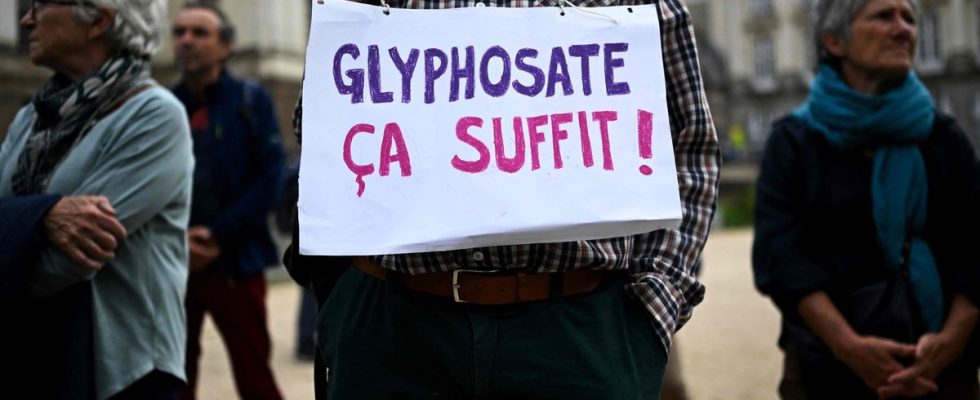Classified as a “probable carcinogen” by the International Agency for Research on Cancer (IARC) of the World Health Organization (WHO), glyphosate, the active substance in the famous Monsanto Roundup, will see its authorization renewed in the Union European for ten years. Which countries have banned or restricted the use of this controversial weedkiller?
In France, first, Emmanuel Macron committed in 2017 to phasing out glyphosate “at the latest” by early 2021, before going back on his promise. Since then, Paris has set itself the objective of moving away from the essential uses of weedkillers. In 2020, the French health agency Anses announced progressive restrictions for its use in agriculture, its use by individuals having been prohibited since 2019.
In the Netherlands and Belgium, the use of glyphosate is prohibited for individuals. In Portugal, its use is prohibited in public spaces. In the Czech Republic, it has been limited since 2019. Luxembourg, which had banned the marketing of the product at the end of 2020, was forced to lift the ban in 2023 by court decision. Comparable situation in Austria: a parliamentary vote to ban glyphosate was canceled at the end of 2019 due to a procedural flaw.
Banned in Vietnam, in the process of being banned in Mexico
In the United States, glyphosate remains on sale, even if local restrictions limit its use. In 2019, the US Environmental Protection Agency (EPA) reaffirmed that glyphosate was “probably not carcinogenic to humans”. In Latin America, Mexico committed at the beginning of 2021 to a progressive ban on glyphosate leading to a total ban from March 31, 2024. In Asia, Sri Lanka has cracked down.
The herbicide, suspected of causing a new chronic kidney disease among residents of rice production areas, was banned from June 2015. But in the absence of studies directly associating glyphosate with this disease , the ban was partially then completely removed in November 2021. Finally, Vietnam announced a ban on the use of glyphosate in 2019, which came fully into force in mid-2021.
As a reminder, in 2022, the European Chemicals Agency (ECHA), unlike the IARC, judged that the available scientific evidence did not allow it to be classified as a carcinogen.

